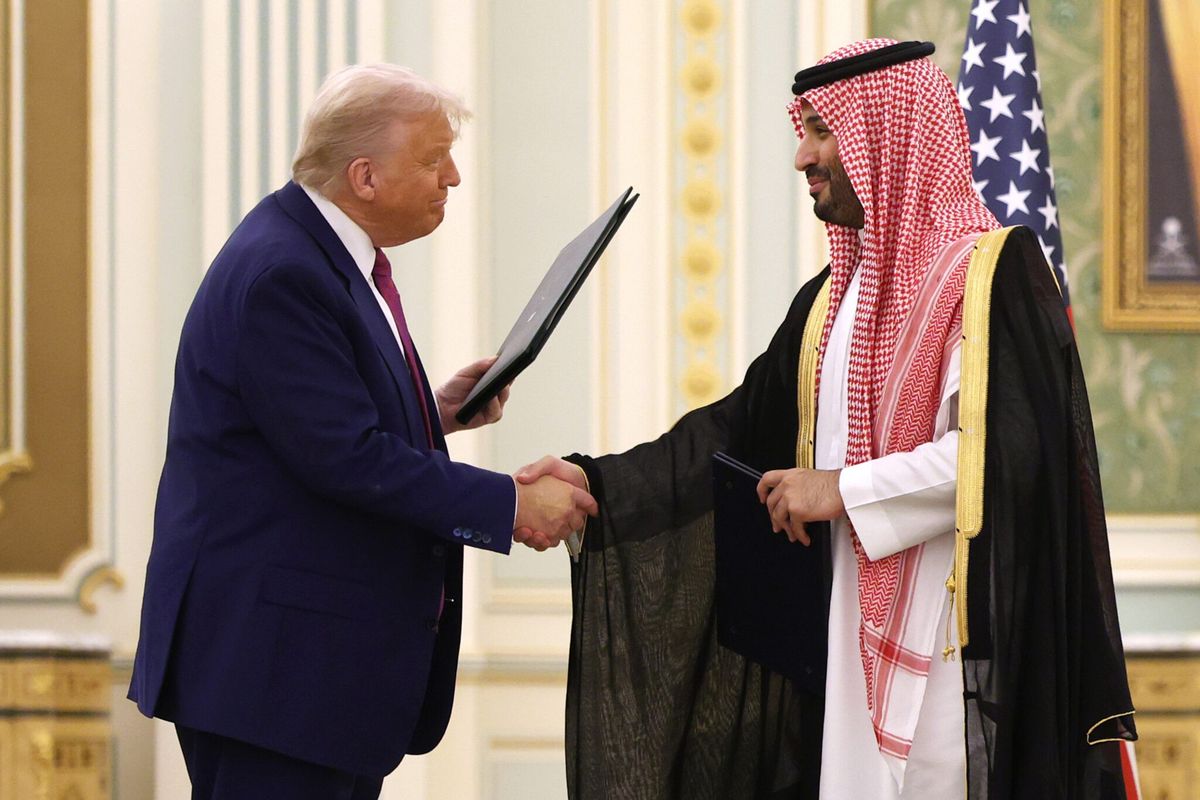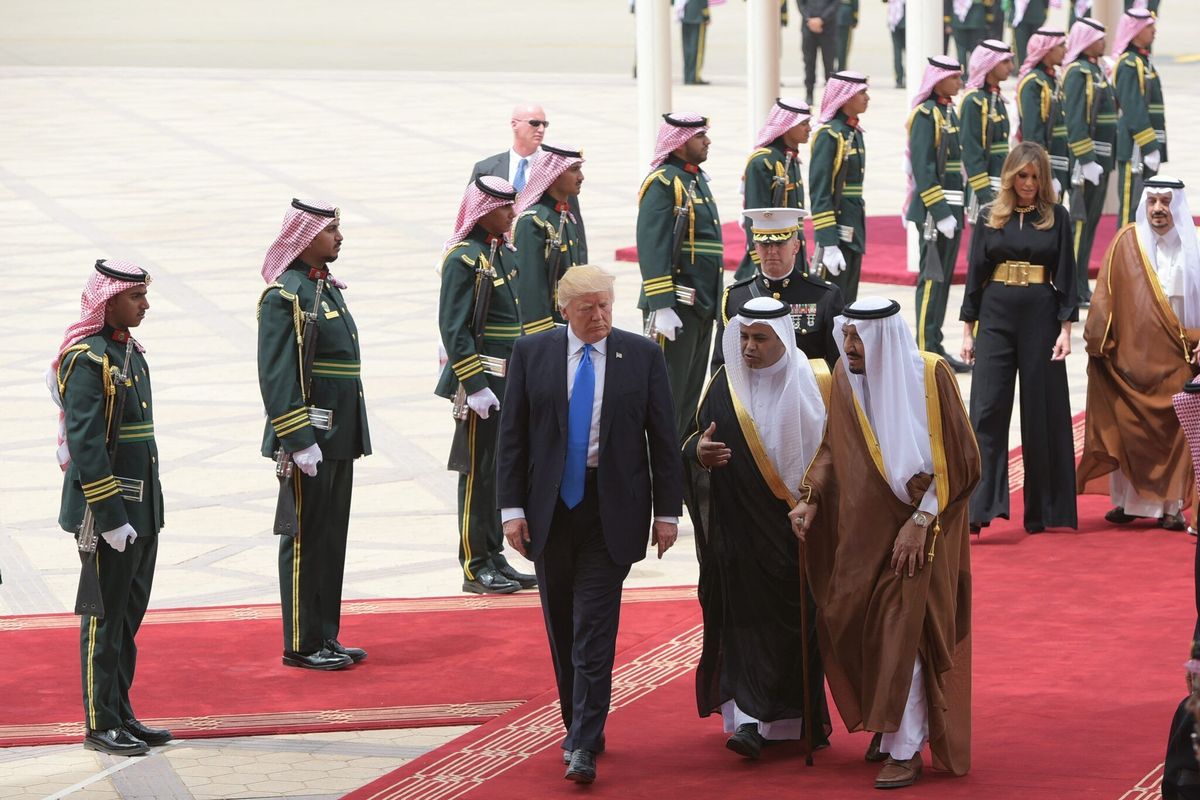SUBSCRIBER+ EXCLUSIVE REPORTING - Almost 21 years after the United States invaded Iraq and toppled Saddam Hussein, the nation is home to a contest between U.S. and Iranian interests. The war in Gaza has not only made that contest more dangerous for Iraq, it has also raised questions about the U.S. presence in the country.
"Iraq continues to pose a challenge for any successful U.S. policy," said Behnam Ben Taleblu, a senior fellow at the Foundation for Defense of Democracies, citing the recent spate of attacks by Iran-backed militias against American targets in Iraq, and calls by the Iraqi government for U.S. forces to leave the country.
For their part, "Iraqi leaders have no choice but to have ties to Iran because it is their largest neighbor, but they don't trust Iran,” Michael Rubin, the Middle East Forum's director of policy analysis, told The Cipher Brief. “If Iranians and Americans balance each other out, Iraqis have space to maneuver," Rubin said. "When there is no balance between Iran and the U.S., Iraqis suffer.”
That balance exists because Iraq hosts armed forces from both the U.S. and Iran. Roughly 2,500 American troops are still there, a vestige of the battle against Islamic State (IS) forces that began a decade ago, and several Iran-supported militias maintain bases inside Iraq. For a time, the dual deployments caused little friction, because the U.S., Iran and Iraq were joined in the goal of driving the IS from the country. Now all that has changed.
Since the October 7 Hamas attacks against Israel and the war in Gaza that followed, the Iran-backed militias have regularly targeted Americans in Iraq as well as U.S. forces in Syria - a total of nearly 200 attacks as of early March. The attacks did minimal damage until a January 28 drone strike that killed three U.S. soldiers and wounded 47 others at a remote base along the Syria-Jordan border.
The U.S. has responded with a series of air strikes, many of which have hit targets inside Iraq. Among those killed in the retaliatory bombings was Abu Baqir al-Saadi, a senior member of the Kata'ib Hezbollah militia, an umbrella organization of the Iranian proxies in Iraq. The U.S. claimed that that al-Saadi was "responsible for directly planning and participating in attacks on U.S. forces in the region."
"The Iranian-backed militias in Iraq's willingness to attack American targets risk Iraq's stability and sovereignty,” Rubin said. "The Iraqi government, meanwhile, is increasingly afraid to tackle the militias."
All this has left the U.S. and Iran trading blows on Iraqi territory, in what has become a dangerous sidebar to the Israel-Hamas war. And the exchanges have left Iraqi Prime Minister Mohammed Shia al-Sudani in an increasingly precarious position.
“Our land and sovereign authority is not the right place for rival forces to send messages and show their strength,” al-Sudani said last month, after the U.S. killed al-Saadi.
But that is precisely what has happened in Iraq since October 7, and the strikes and counter-strikes carry dangers for all three countries, along with the risk of a wider regional war.
A 2020 assassination
More than three years before the latest Gaza war began, a U.S. military strike in Iraq changed the equation in the country.
On January 3, 2020, an American drone strike killed a leader of Iran's powerful Revolutionary Guards Corps, Qassim Suleimani, at Baghdad International Airport. The U.S. said it targeted Suleimani in retaliation for the killing of an American contractor in northern Iraq, and a history of attacks against American soldiers in the country. Iran vowed a fierce retaliation of its own, and urged Iraq to expel U.S. forces from the country.
The U.S. had pulled its troops from Iraq in 2011, the end of a long and controversial occupation, and returned at the invitation of the Iraqi government in 2014 to join the fight against the Islamic State. And while that battle was effectively won in 2019, the Americans stayed on, in part to ensure that IS forces would not return.
Iran by then held considerable political power in Iraq, and after Suleimani’s death, Iran used its forces in Iraq to take shots at U.S. bases in the country. But it was only after Israel’s invasion of Gaza last October that those attacks rose to another level of frequency and ferocity.
Stay or go?
The current goal for Iran and its Iraq-based proxies is clear: drive the Americans out of Iraq.
"Iran's network in Iraq has steadily socialized calls for the eviction of U.S. forces while increasingly targeting positions affiliated with the U.S. force presence,” Taleblu told The Cipher Brief. The Iranian strategy, he added, rests on “the hopes of begetting a cycle of violence that can lead to the U.S. being evicted from Iraq."
To some extent, the strategy is working. The recent strikes have sparked a vigorous debate about the American presence in the region. Some analysts and former military officials believe the Iraq and Syria deployments are more valuable now than they were before October 7, given the spike in regional tensions; others argue the mission isn’t worth the heightened risks, and that the troops’ presence raises the likelihood of tripwires that could lead to a wider war.
After the January 28 strike that killed the three Americans, Bernard Hudson, a former director of counterterrorism at the CIA, told The Cipher Brief that the attack “just underscores the vulnerability that U.S. forces have, scattered and dispersed as they are in Syria and in Iraq.” Even before the attack, Hudson had argued for removing the American troops, referring to them as “folks in harm’s way who can’t be protected and are surrounded by Iranian elements in both countries.”
Defense Secretary Lloyd Austin has said that the U.S. is reviewing the posture of its troops in Iraq in conjunction with the Iraqi government. And Renad Mansour, Senior Research Fellow at the London-based Chatham House, said that while Iran has a long history of interest in - and conflict with - its Iraqi neighbors, American priorities may lie elsewhere.
"If you look at the Biden administration, before October 7, there was this idea that okay, we're done with the Middle East,” Mansour told The Cipher Brief. “We have other issues, whether China, Russia, or Ukraine. But for Iran, Iraq will always be a key country."
But others note that Iran's power in Iraq is limited as well.
“I wouldn't overestimate the closeness of Tehran and Baghdad,” said Jonathan Lord, Director for the Middle East Security Program at the Center for a New American Security. “The U.S. is more impactful by far. Iraq's economy functions courtesy of the U.S. dollar. Its air force flies F-16s. Iran operates within and between the Iraqi institutions that are undergirded and built by Washington. Iran-backed militias can throw fastballs at our heads, but at the end of the day, everyone would be wise to remember the U.S. owns the stadium."
Lord believes the Biden Administration erred in not recognizing that the mission to defeat the Islamic State had reached the end of its operational usefulness, and that the U.S. should have opened a new dialogue with Baghdad, “more broadly focused on creating lasting and sustainable security institutions in Iraq."
"Washington needs to couch its Iraq-related policies in a narrative that's receptive to Iraqis,” Lord said. “The U.S. policy in Iraq shouldn't even mention Iran. Everything should be couched in the objective of strengthening Iraq's national sovereignty, Iraq's economy, and Iraq's governing institutions.”
The view from Baghdad
For the Iraqi government, the U.S.-Iran balance looks more delicate and dangerous than ever. While Iraqi officials have condemned the attacks against U.S. forces, they have also criticized the U.S. response, particularly the fact that the retaliatory strikes have sometimes hit targets not directly associated with attacks on Americans. And the government has repeated its calls to expel the U.S. troops.
But Lord and others believe that Iraq welcomes the current U.S. presence in ways it won’t acknowledge publicly – in particular as a security and economic partner.
Most Iraqi politicians “recognize the importance of the U.S. relationship,” Lord told The Cipher Brief, “and thus far, it shows. Despite the political narratives and theatrics, nothing has changed, and Iraqis in positions of power would prefer to keep it that way."
In other words, the calls for the Americans to leave may be meant to assuage public anger, while in private many officials would prefer that they stay. The U.S. has continued to train Iraqi forces, and there is an underlying concern that if those 2,500 American troops leave, the withdrawal might open the door for a revival of the Islamic State in Iraq.
Ultimately, it’s an almost no-win situation for the government in Baghdad. Despite a recent drop in the Iran-backed proxies’ strikes, the low-boil Iran-U.S. conflict continues. Al-Sudani's foreign affairs advisor told Reuters recently that the Prime Minister "has worked with all relevant parties both inside and outside Iraq, warning them that (escalation) will destabilize Iraq and the region."
Read more expert-driven national security insights, perspective and analysis in The Cipher Brief













